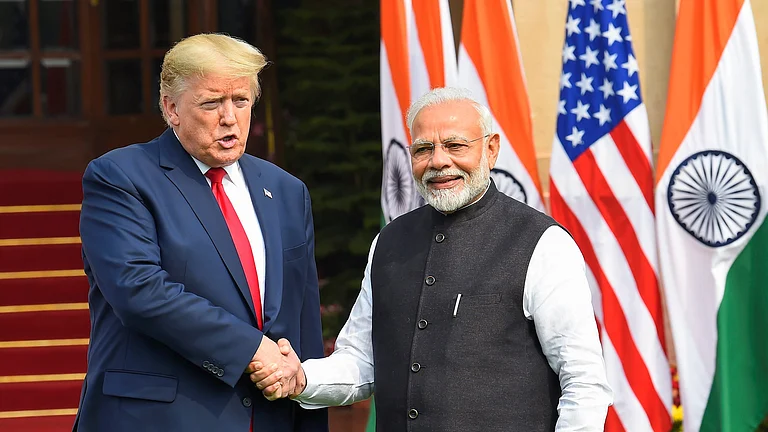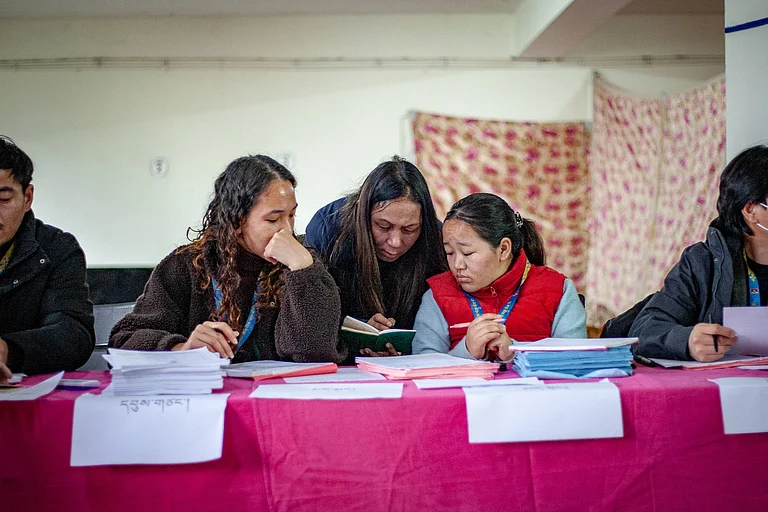The Supreme Court this week refused to stay a Patna High Court decision that struck down the Bihar Reservation of Vacancies in Posts and Services (for Scheduled Castes, Scheduled Tribes, and Other Backward Classes) Amendment Act, 2023, and the Bihar Reservation (in Admission to Educational Institutions) Amendment Act, 2023, passed by the Bihar government. These amendments were aimed to increase reservation in admissions and services from 50 per cent to 65 per cent.
The Bihar Government, led by Chief Minister Nitish Kumar, in 2022, did a caste-based census which led to a widespread debate on increment of reservation for Scheduled Castes (SC), Scheduled Tribes (ST), and Other Backward Classes (OBC). The Caste Census revealed that in Bihar, more than 63 per cent of the population falls under the criterion of Backward Classes and Extreme Backward Classes, whereas the General Class category falls around 15 per cent of the total population. Citing this data from the Caste Census, the Bihar Government passed a law to increase the percentage of reservation in the state from 50 per cent to 65 per cent―50 per cent is the ceiling of reservation set by the Indira Sawhney vs the Union of India judgement of 1992.
The Constitution permits the State to enact special measures for the benefit of the poor and guarantee social justice. In the recent past, there has been a renewed focus on reservation―not with the perspective of constitutional protection of the underprivileged, but to consolidate vote banks of different communities. This has been countered by courts in different cases where the court has struck down reservations for communities that were socially very strong, but electoral profits were provided with reservations. Similarly, in the Dr Jaishri Laxmanrao Patil judgement (2022), the Supreme Court invalided the reservation provided to Marathas in Maharashtra stating that reservation to Marathas as OBC infringes the law laid down in the Indira Sawhney vs the Union of India judgement of 1992. The apex court also said that the Marathas are a strong community within the state of Maharashtra and cannot be accounted as a socially underprivileged community.
Historically, the court’s response to this reservation reveals that our judiciary has been swift in voiding laws that discriminate the principles of reservation. The courts have strictly followed the law laid down in the Indira Sawhney vs the Union of India judgement of 1992 and stood for the upper cap of 50 per cent for reservations. However, a Constitution Bench of the Supreme Court―in the Janhit Abhiyan vs the Union of India (2022) judgement―maintained that the Economically Weaker Section (EWS) reservation can exceed the 50 per cent cap on reservations, as the cap only applied to communities that were SCs, STs, and OBCs.
When the Balaji vs State of Mysore judgement (1962) of 50 per cent cap on reservation was introduced, it was pointed out that it is abundantly evident that there should be a balance between citizens’ rights to equality of opportunity under Article 16(1) and specific protections for underprivileged groups under Article 16(4). Additionally, since Article 15(4) and Article 16(4) are similar, reservation shouldn’t exceed more than 50 per cent. This was affirmed by the Devadasan vs the Union of India judgement (1964), the State of Kerala vs N M Thomas judgement (1976), most importantly, in the Indira Sawhney vs the Union of India judgement of 1992.
The High Court stated that the 50 per cent cap may only be exceeded in specific situations. It referred to Indira Sawhney, in which the Supreme Court ruled that the reservation cap of 50 per cent may only be exceeded in order to carry over any open positions from prior years. Furthermore, in distant places where the people do not fit into the mainstream of national life, reservation may exceed the allotted limit. The Bihar scenario, according to the court, does not reveal any mitigating circumstances that would allow for any change.
The division Bench of the High Court delved into the objection to Articles 15(4) and 16(4) of the Constitution. Article 16(4) states that the State may reserve posts for any backward class that are not sufficiently represented in the state’s services. Article 15(4) gives the State the authority to make any special provisions for the advancement of SCs, STs, and any socially and educationally backward classes of citizens. The court determined that the government’s primary concern was the fact that a sizable amount of the state’s population belonged to the backward classes and that their representation in the unreserved category was out of proportion. The judgement denies the argument of proportional representation for backward classes; it holds that the word proportionate is not a subject matter in Articles 15 and 16. However, the subject matter of proportionate representation is dealt with in Articles 330(2), 243D, and 243T, which deal with the representation of SCs and STs in the Lok Sabha, panchayats, and municipalities, respectively, employ the phrase proportional representation.
It is settled under the constitutional mandate that the reservations, when implemented under Articles 15(4) and 16(4), should be aligned with the principles of adequate representation. When reservation to backward classes is provided through the doctrine of proportional representation under Articles 15(4) and 16(4), it infringes the constitutional principles of reservation under the constitution. It was mentioned that proportionate representation only applies to the reservation percentage that is used for the different groups that belong to the lower classes.
The Caste Census reveals the data of different classes and provides for the percentage of communities in the state. While enhancing the reservation in Bihar, the state government failed to study the data deeply. Reservation, as per the constitutional mandate, should be based on the social and educational backwardness of a community. To provide for reservation, there shall be an analysis of the community and its backwardness; a social change should not be done without a thorough study of society.
A similar stance was taken up by the Supreme Court in the Dr Jaishri Laxmanrao Patil judgement (2022), where the court opined that providing reservations to Marathas is socially flawed as Marathas are a progressive community and have had a stronghold in the state of Maharashtra. Thus, it will be constitutionally flawed to put Marathas under the umbrella of backwardness. Along similar lines, providing reservations without examining the caste census data of Bihar has an overreaching effect on equality and reservation policy under the Constitution.
During the Lok Sabha elections in 2024, Rahul Gandhi, a leader of the Indian National Congress, promised that if they come to power they will remove the 50 per cent cap on reservations. The same was included in the manifesto of the Grand Alliance of the Opposition. The Patna High Court ruling comes as a push towards this campaign, and rightly so, as removing the 50 per cent cap on reservation should not be a political or electoral gimmick. Enhancing reservations to provide equality to every community should be based on a deeper study of the community.
In order to move from adequate representation to proportional representation there should be a scientific study of the community, not only on the grounds of backwardness, but also on the grounds of representation of community in government jobs and educational institutions. To go for this change, there should be a nationwide caste census, which will give a clear picture of society. However, to enhance reservation and provide representation, the focus on merit should not be neglected. The Patna High Court’s view that merit cannot be completely sacrificed just for representation is also correct.
Reservation is a very sensitive social issue; it should not be used for electoral politics. Going beyond the cap of 50 per cent will need a comprehensive understanding of the dynamics of society and communities. Thus, a nationwide Caste Census at this juncture is very important to have a clear understanding of the societal fabric.
(The author is a legal researcher)


























